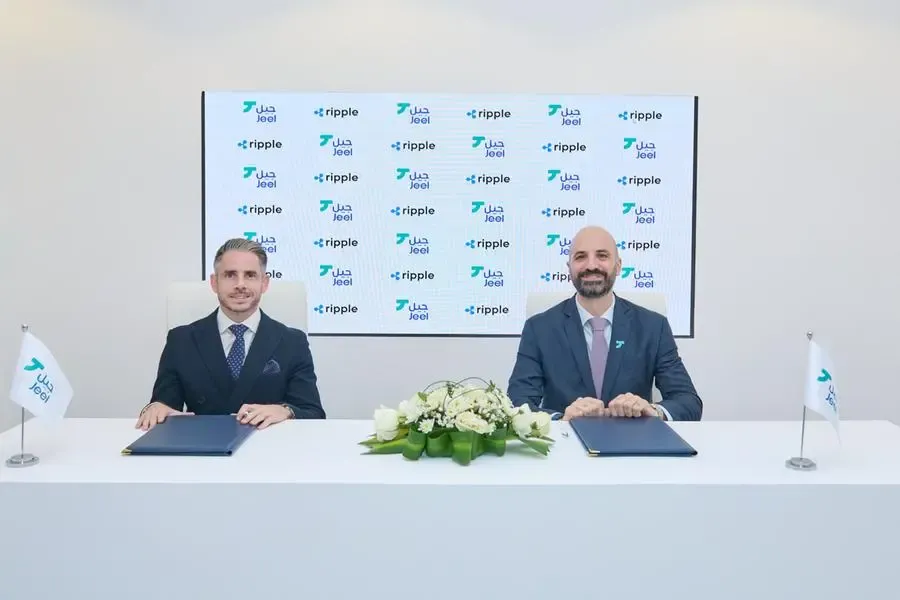 If successful, the AI companion could set a new benchmark for personal technology, transforming how people engage with digital environments. (jamesonwu1972/Shutterstock)
If successful, the AI companion could set a new benchmark for personal technology, transforming how people engage with digital environments. (jamesonwu1972/Shutterstock)The collaboration marks a pivotal shift in OpenAI's strategy as the company moves beyond software to enter the consumer hardware space. Altman described the acquisition as potentially adding $1 trillion in value to OpenAI, emphasizing its significance in shaping the future of artificial intelligence and everyday tech.
Ive, best known for designing Apple's most iconic products such as the iPhone, iPad, and MacBook, brings decades of industrial design expertise to the table.
thrilled to be partnering with jony, imo the greatest designer in the world.
— Sam Altman (@sama) May 21, 2025
excited to try to create a new generation of AI-powered computers. pic.twitter.com/IPZBNrz1jQ
The shared goal is ambitious: to create a personal AI device that transcends traditional tech categories and offers a new, intuitive way for humans to engage with artificial intelligence.
Although official details remain under wraps, insiders suggest the device will be a pocket-sized, screen-free gadget—neither a smartphone nor a wearable. Instead, it is envisioned as an ambient AI "companion" that understands context, adapts to user behavior, and seamlessly integrates into daily life.
The concept is inspired by the desire to move away from screen-dominated interactions. Altman and Ive aim to develop something that can act on a user's behalf, offering assistance in a way that's more fluid and less intrusive than current devices. Sources say the design will prioritize subtlety, privacy, and convenience.
According to those familiar with early prototypes, the device could rely on voice, gesture, or other non-visual interfaces to interact with users, effectively becoming a "third core device" alongside smartphones and laptops.
OpenAI’s acquisition of io and investment in bespoke hardware signals the organization’s deeper strategic ambitions. While its software, including ChatGPT and enterprise APIs, has already seen widespread adoption, entering the hardware domain represents a bid to control the entire AI user experience.
This level of integration could give OpenAI a competitive edge as the AI landscape becomes increasingly crowded. It also positions the company to innovate in areas like edge computing, privacy-first architectures, and real-time contextual intelligence.
However, Altman and Ive are not alone in pursuing dedicated AI hardware. Competitors like Humane and Rabbit have launched their own AI-centric gadgets in recent months, though these have faced lukewarm reviews and adoption hurdles.
Sources familiar with internal planning suggest OpenAI intends to ship 100 million units of the new AI device within its first production run, a scale rarely seen outside of smartphone launches by Apple or Samsung.
To support this vision, OpenAI will likely leverage its growing partnerships with chipmakers, cloud providers, and manufacturing partners. Additionally, the company may explore custom silicon to optimize AI inference on-device, enhancing performance while preserving user privacy.
The implications of this scale are immense. If successful, the AI companion could become a household standard, redefining the way people interact with digital systems. Analysts suggest this could also be the first step in a broader ecosystem of OpenAI-branded hardware, much like Apple’s expansion beyond the iPhone.
Beyond technical feasibility, OpenAI and Ive are reportedly committed to designing the product with ethical foresight. The team is said to be exploring how to mitigate bias, ensure transparency, and embed safety controls into the hardware itself.
In an era where public scrutiny of AI's societal impact is growing, this approach could be crucial in establishing trust. By embedding values like explainability, data minimization, and user autonomy, OpenAI hopes to set a new standard for consumer-facing AI.
The first generation of the AI companion device is expected to debut in late 2026, with teasers and early prototypes potentially appearing much sooner. While the journey from concept to mass adoption is fraught with challenges, few industry observers doubt the potential of the Altman-Ive partnership to reshape the tech landscape.
For OpenAI, this marks a definitive move toward becoming not just an AI research organization but a full-fledged platform company, one that builds the future of human-machine interaction from the ground up.

New sharia-friendly fund targets digital growth

Investcorp broadens digital investing in Saudi Arabia

Jeel advances AI-driven banking across Saudi Arabia

Dubai DAMAC founder nears $20B AI goal